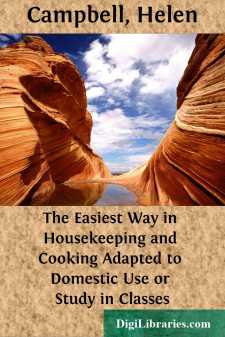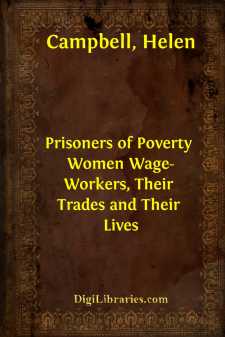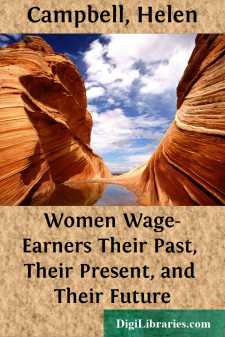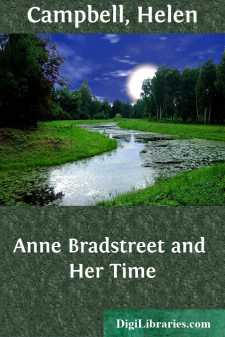Categories
- Antiques & Collectibles 13
- Architecture 36
- Art 48
- Bibles 22
- Biography & Autobiography 813
- Body, Mind & Spirit 142
- Business & Economics 28
- Children's Books 16
- Children's Fiction 13
- Computers 4
- Cooking 94
- Crafts & Hobbies 4
- Drama 346
- Education 46
- Family & Relationships 57
- Fiction 11829
- Games 19
- Gardening 17
- Health & Fitness 34
- History 1377
- House & Home 1
- Humor 147
- Juvenile Fiction 1873
- Juvenile Nonfiction 202
- Language Arts & Disciplines 88
- Law 16
- Literary Collections 686
- Literary Criticism 179
- Mathematics 13
- Medical 41
- Music 40
- Nature 179
- Non-Classifiable 1768
- Performing Arts 7
- Periodicals 1453
- Philosophy 64
- Photography 2
- Poetry 896
- Political Science 203
- Psychology 42
- Reference 154
- Religion 513
- Science 126
- Self-Help 84
- Social Science 81
- Sports & Recreation 34
- Study Aids 3
- Technology & Engineering 59
- Transportation 23
- Travel 463
- True Crime 29
Helen Campbell
Helen Campbell (1839–1918) was an American author and social reformer known for her work on women's issues and poverty. She wrote extensively on domestic science and labor conditions, blending fiction with social commentary. Her notable works include "Prisoners of Poverty" (1887), which highlighted the plight of working women, and "The Problem of the Poor" (1882), where she explored urban poverty. Campbell's writings were influential in advocating for social reforms, particularly in improving the living and working conditions of women.
Author's Books:
Sort by:
by:
Helen Campbell
Introductory. That room or toleration for another "cook-book" can exist in the public mind, will be denied at once, with all the vigor to be expected from a people overrun with cook-books, and only anxious to relegate the majority of them to their proper place as trunk-linings and kindling-material. The minority, admirable in plan and execution, and elaborate enough to serve all republican...
more...
by:
Helen Campbell
CHAPTER I. BOTH SIDES OF THE SEA. With the ending of the set of studies among the working-women of New York, begun in the early autumn of 1886 and continued through several months of 1887, came the desire to know something of comparative conditions abroad, and thus be better able to answer questions constantly put, as to the actual status of women as workers, and of their probable future in these...
more...
by:
Helen Campbell
CHAPTER FIRST. WORKER AND TRADE. In that antiquity which we who only are the real ancients look back upon as the elder world, counting those days as old which were but the beginning of the time we reckon, there were certain methods with workers that centuries ago ceased to have visible form. The Roman matron, whose susceptibilities from long wear and tear in the observation of fighting gladiators...
more...
by:
Helen Campbell
WOMEN WAGE-EARNERS; THEIR PAST, THEIR PRESENT, AND THEIR FUTURE. The one great question that to-day agitates the whole civilized world is an economic question. It is not the production but the distribution of wealth; in other words, the wages question,—the wages of men and women. Nowhere do we find any suggestion that capital and the landlord do not receive a quid pro quo. Instead, the whole labor...
more...
by:
Helen Campbell
INTRODUCTION. Grave doubts at times arise in the critical mind as to whether America has had any famous women. We are reproached with the fact, that in spite of some two hundred years of existence, we have, as yet, developed no genius in any degree comparable to that of George Eliot and George Sand in the present, or a dozen other as familiar names of the past. One at least of our prominent literary...
more...






